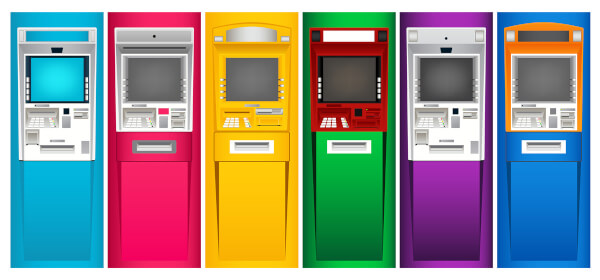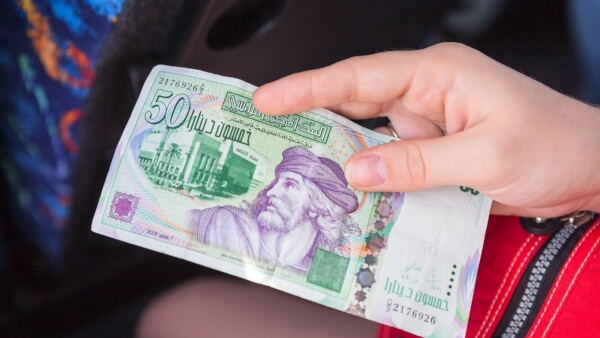Hays travel card review: features, fees and more
Read our Hays travel card review, covering exchange rates, limits, fees and benefits.

If you’re dreaming of a trip abroad, but concerned about the costs, it’s good to know that you can often save money with some advanced planning. One thing that’s worth considering, is how you’ll pay your way while you’re travelling. For many of us, using debit or credit cards abroad is the most convenient and safe option. It’s simple, and there’s no need to walk around with a pocketful of unfamiliar cash. But using a card overseas can be expensive. Your money will go further if you know about potential fees, charges, and pitfalls before you go, so you can avoid overpaying.
Read this guide to find out:
Whether you have a Visa debit, Visa credit or Mastercard from NatWest, you should be able to use it abroad to make purchases or withdraw cash, just as you would at home. You can even keep on using contactless, as long as the retailer has the contactless symbol displayed. Some countries, however, haven’t yet adopted contactless technology so you may be out of luck.
You do need to know, though, what additional fees you’ll need to pay when you use your card overseas. If you’re headed somewhere exotic, then don’t forget cash is still the main form of payment in some countries. Taking some cash with you might be a sensible idea, too.
Whether you choose to spend abroad using your debit or credit card, you’re going to incur some fees.
To work out what charges will be applied, firstly you need to know if your card is a Visa or a Mastercard. Although your card will be issued by NatWest, all banks rely on a company like Visa or Mastercard to process transactions for them. Knowing which system your card operates on is important because they both have a slightly different way of calculating the currency exchange rate used on your purchases made abroad. You can find out easily if you have a card operating with Visa or Mastercard, by looking for the symbol on the card itself.
To show you how the calculation works, let’s say you have a NatWest Visa debit card. In this case, the bank will apply the daily exchange rate used by Visa, and convert your purchase cost into GBP. The exchange rate goes up and down with the market. There’s generally a small mark-up on the real exchange rate you’ll find on Google, but usually these rates are pretty fair, as long as you’re charged in the local currency wherever you are. Watch out, however, for Dynamic Currency Conversion (DCC). This is when you’re charged in GBP - and you’ll find that you run into incredible mark-ups. But more on that later.
Mastercard tends to offer marginally better rates for international purchases, according to analysts. However, the differences are pretty small and vary depending on which currency you’re spending in. You can see how your card exchange rate compares to the real, mid-market rate, using an online currency converter.
You can find the daily exchange rates being used between different currencies by Visa and Mastercard, below:
As well as any exchange rate markups, NatWest then takes a further cut for itself. This is known as a non-sterling transaction fee, a foreign purchase fee or a foreign cash fee.
If you’re taking cash out of an ATM, there are further charges to pay. These are worked out as a percentage of the amount you’re withdrawing, subject to minimum and maximum amounts.
As well as NatWest’s costs, some individual banks or ATM providers might levy their own fees on top.
Another unfair fee to watch out for is DCC. You might also be asked if you want your bill to be processed in GBP instead of the local currency wherever you are. This could be at an ATM, restaurant or store, and is something touted as a convenience for customers. However, it should most definitely be avoided.
If you’re offered DCC, you should always choose to pay in the local currency. Otherwise, the foreign currency exchange rates applied are never as good as those your card provider will use.
Your bank has an interest in ensuring you’re happy with their services. A foreign provider, however, has no such obligation. By choosing to pay in sterling, you’re basically giving the local company or ATM machine permission to use its own, mostly poor, exchange rates. They’ll have no problem happily marking up an exchange rate so they can pocket the difference, and you’ll be unnecessarily paying more than you need to for your trip.
If you’re paying for your holiday on a credit card, the process will be similar, but must also take into account any interest charges applied if you don’t pay your bill at the end of the month.
The exact fees you need to know about are online, in the NatWest ‘Guide to spending abroad’, or on the back of your card statements if you have a card with a promotional offer. If you use the online version of NatWest’s guide, be warned that the exchange rate detailed is several years old, and due to significant fluctuations in the rates, seriously out of date. Get up-to-the-minute rates using the Visa/Mastercard linked pages above.
Here are the fees you will be charged to use your NatWest credit or debit card while you’re away:
| Non-Sterling Transaction Fee | Foreign Purchase Fee | Foreign Cash Fee/ Cash Fee |
|---|---|---|
| Purchases | n/a | 2.75% (minimum of £1 per transaction) |
| Cash | 2.75% | n/a |
| Non-Sterling Transaction Fee | Foreign Purchase Fee | Foreign Cash Fee/ Cash Fee |
|---|---|---|
| Purchases | 2.75% | n/a |
| Cash | 2.75% | n/a |
| Non-Sterling Transaction Fee | Foreign Purchase Fee | Foreign Cash Fee/ Cash Fee |
|---|---|---|
| Purchases | 2.75% | n/a |
| Cash | 2.75% | n/a |
Visa and Mastercard have handy online tools linked above to help you work out what you’ll actually be charged if you make purchases abroad. For example, if you spend EUR 100 in a restaurant during your romantic weekend in Dublin, and use your Natwest Mastercard, the exchange rate applied taking into account the non-sterling transaction fee charged by your card provider, could have looked like so:
Using this exchange rate, you can see that the final bill totalled £92. The exchange rate used will go up and down on a daily basis, so it’s worth checking the online tools regularly.
It’s worth thinking about how you’ll cope in the nightmare scenario that your card goes missing somehow when you’re on your holiday.
If your card is lost or stolen when you’re abroad, you must contact NatWest to report the loss. If you think your card was lost, you can simply report the problem online through their app or online banking system. However, if you think the card was stolen, or if you believe someone might have accessed your PIN then you must call to report it. If you have any doubt, it’s always best to pick up the phone.
You might also choose to get card protection insurance. This offers additional help if your card is lost or stolen while you are abroad, but will come at a fee. Card protection can be arranged through your bank or an insurance company. If you do take this additional protection, make sure you have all your policy details with you when you travel - just in case.
Whether it’s best to use a debit or credit card abroad is largely down to your personal preferences and spending habits.
A debit card is better if you intend on taking out cash from an ATM. That’s because the foreign cash fees added are capped with a debit card, but not with a credit card. Think about the charges when you’re planning your spending, as you might be better off making a small number of large cash withdrawals to avoid the worst of the charges. Better still, pay your way using your debit card directly, rather than handling cash.
The charges are the same for purchases whether you’re using a debit card or credit card. However, if you want to spread the cost of your holiday over time, then a credit card allows you to do this. You may find you’re liable for additional interest costs, though. Spending on a credit card can also be more secure than using cash, as your purchases will be monitored and you should be able to get help if you are the victim of fraud. To get the most out of this option, you should keep all your receipts and check your card statements thoroughly.
NatWest suggests that you let them know if you’re planning on travelling, so they understand a change in your spending patterns. You can do this easily on their app, on online banking or by calling into your local branch. While you’re away, it’s really important that they have the correct contact details for you. Check the phone number they have easily online. If the bank detects any suspicious activity, this is how they’ll try to get hold of you. If the number is wrong or you have your phone turned off while you’re abroad, you risk having your account activity blocked or limited while they make further checks.
It’s well worth having a secondary bank card just in case there’s a problem with your main card, such as it being blocked, lost or stolen. Keep a bit of cash on you too, in case you find that cards aren’t widely accepted where you go.
When it comes to taking cash out of an ATM, don’t forget you’ll have a limit to how much you can withdraw every day. It’s set in GBP, so you’ll need to convert it to the local currency so you know the rough amount. Also, the ‘daily’ limit refers to midnight to midnight UK time, so it’s worth working out what that means to you if you’re in a different time zone.
Of course, it can be tough to keep track of your spending when you’re on holiday. You might accidentally overspend while away because you lose track of the costs in another currency. To avoid this, NatWest suggest you use their app or sign up to their SMS service, which will give you account updates by text message. Otherwise, you might try a more general app to monitor and manage your cash flow while you’re away. Setting a daily spending limit is another way to help make sure you don’t have any nasty surprises once your holiday is over.
Your holiday is about relaxing, and having fun. You shouldn’t need to worry about money. So, take these tips, and make sure you know before you go, which method of payment is going to be best for you. Then you’re safe to relax and enjoy!
*Please see terms of use and product availability for your region or visit Wise fees and pricing for the most up to date pricing and fee information.
This publication is provided for general information purposes and does not constitute legal, tax or other professional advice from Wise Payments Limited or its subsidiaries and its affiliates, and it is not intended as a substitute for obtaining advice from a financial advisor or any other professional.
We make no representations, warranties or guarantees, whether expressed or implied, that the content in the publication is accurate, complete or up to date.

Read our Hays travel card review, covering exchange rates, limits, fees and benefits.

Read our TUI travel card review, covering exchange rates, limits, fees and benefits.

Read our guide on ATMs abroad including networks, locations and tips on how to avoid ATM fees abroad.

If you’re a Barclays customer, have a Barclaycard or hold a Barclays debit card, get familiar with fees and how to use your card abroad in our article.

What is the best currency to take to Cape Verde? Read our guide on currency in Cape Verde, accepted payment methods and more.

What is the best currency to take to Tunisia? Read our guide on currency in Tunisia, accepted payment methods and more.